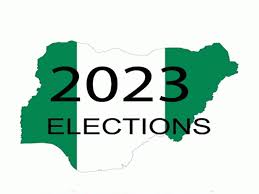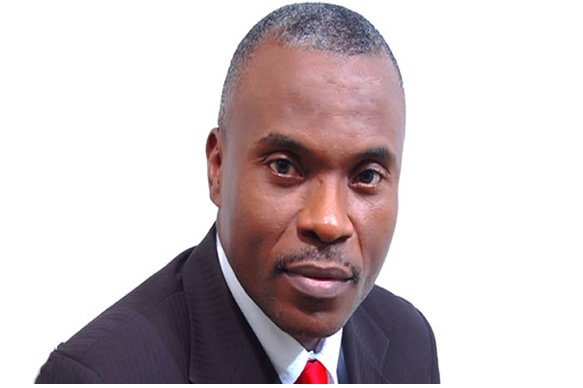THE GUARDIAN
With the success of last Saturday’s presidential and National Assembly elections we have earned our wings. Like Lot’s wife there is no looking back. Weeks to the scheduled date for the election it looked as if there would be no elections at all. Even INEC expressed that doubt and bluntly told us that the elections may be postponed or cancelled. That the election was held is due to President Muhammadu Buhari’s firm insistence that the elections must be held so that our democracy may survive and grow. No one can take that credit away from him.
To be fair to INEC, there were kitchen table issues to be tackled. INEC offices were being burnt or bombed here and there; its election hardware were being stolen or destroyed; then there was the problem of petrol scarcity to worry about; there was also the nagging issue of currency change that had thrown lots of people under the bus, so to speak.
These debilitating issues threw a blanket of cynicism over the heads of Nigerians. Even though the government and the security agencies had assured us a million times that the elections would hold as scheduled there was still grave doubt, doubt that it would be possible to bring the rascals who were causing mayhem in various states to the circle of reason.
To cut a long story short, the elections held and were relatively peacefully. Of course, no election is perfect anywhere in the world. In some parts of the country there were cases of ballot box snatching or destruction; some people were prevented from voting in places considered to be the strongholds of some politicians; some of the BVAS machines behaved badly, malfunctioned; in some places the election materials or officials arrived late.
All of these were little irritations that did not take much away from the success of the elections. These issues will, hopefully, be resolved in the elections of March 11, the elections of state governors and members of the State Houses of Assembly.
So far we have had seven election cycles in 24 years of our democratic engagement. This is the longest period we have had without military intervention by way of coups. We must build on this success. That is why the suggestion by some people that considering the difficulties that appeared to overwhelm us weeks before the election that we should go for the contraption called Interim Government. It is gratifying that Nigerians were eager to shoot down the insane idea. Of course, we are no strangers to interim government. In the Third Republic, that was President Ibrahim Babangida’s idea of papering over the cracks that had arisen from his unjustified annulment of the June 12, 1993 election, which his friend Chief M.K.O Abiola had won.
During these 24 years of our democratic engagement there have been disconcerting moments that threatened the life of our democracy. There have been some cases of silly impeachments, impeachments conducted in hotel rooms, impeachments conducted at dawn, legislative sittings conducted under tree shades and impeachments conducted with the speed of lightning and against all known rules of civilised political conduct or propriety. Many of these impeachments were simply a pageant of shamelessness unfit for display in any civilised society.
They must have thrown democracy-loving people into the abyss of despair. But these are issues that have brought us some lessons that can make our democracy grow if those lessons are learnt. For our democracy to grow these lessons must paint for us a canvass of possibilities, possibilities of a growing flame of optimism in our democratic journey. That optimism must come from the politicians themselves. They must believe in democracy and its rules of engagement.
I know that Nigerians love the thrill of competition but competition must be handled with the restraining hand of propriety. Everyone of the major contestants said that he was sure of winning the election. There is nothing wrong with optimism but optimism must be based on realities on the ground. Only one person will win the election at the end of the day. But boastfulness is part of politics. Most politicians are boastful like a rainless thunder. But it is the tradition here for those who lose elections to put their fate in the courts.
Even though Buhari knew that he had no chance of winning the elections he went all the way to the Supreme Court three times. And three times he lost. He only won on the fourth occasion because he had an amalgam of parties that Bola Tinubu put together in 2013, which gave him the winning muscle. When he voted for Tinubu the other day and allowed the world to know who he voted for he was simply showing a belated sense of gratitude after all the acts of subterfuge which were intended to stop the Lagos warrior in his tracks.
By the time you get to read this the election results would probably have been released. From the results so far released all the major presidential election contestants won their polling units. When the results are announced, it is likely that the losers are going to push their cases in the courts. That is the beauty of democracy, that the courts can be used for adjudication in such matters. There is only one case in our history where the loser was gallant enough to accept defeat and call the winner. It only happened in the 2015 election when President Goodluck Jonathan phoned Candidate Muhammadu Buhari to congratulate him on his victory. That decision catapulted Jonathan, in the eyes of democracy-loving people, from an election loser to a respectable statesman not only in Nigeria but also in the global community. That is why many people who appreciated his gesture were angry that he failed to realise that those who urged him to come out and contest on the APC platform in the 2023 presidential primaries were simply trying to lure him into a position of political harlotry. That would have made him less than a statesman. Today, he can still hold his head high because good sense prevailed and he backtracked at the last moment.
There is a famous Arab proverb that says: “The hand you cannot bite, kiss it.” I recommend this saying to any of the losers, for them to accept that only one person can get the presidential trophy and if it is not you, that is not the end of the world. You can go home in dignity realising that you fought a good fight. You don’t necessarily have to be the bride at every wedding and the corpse at every burial. Whatever is the result the issue of rotation will have to be settled. If any of the candidates from the south wins, then it means that the presidency has rightly gone to the south after eight years of Buhari’s presidency. But it will still be an unsettled matter officially because there were northern contestants in this election, the most prominent ones being Alhaji Atiku Abubakar of the PDP and Alhaji Musa Kwankwaso of the NNPP. They contested because they did not accept the concept of rotation.
If any of the candidates from the north wins it, it means that the rotation of the presidency between north and south has flopped. In that case it leaves the matter open and anybody from any part of the country can contest. At a meeting in Asaba all the 17 Governors of Southern States had decided that the presidency should move to the South at the end of Buhari’s tenure. The APC Governors from the North also decided that the presidency should move to the South. But that was not binding on all politicians even of the APC. The Senate President, Ahmad Lawan, who is from the North East and is an APC member contested in the presidential primaries and lost. He went back to look for his senate seat and he was one of the contestants in last Saturday’s election.
If we are interested in the unity and stability of the country and in the peaceful coexistence of Nigerians from various parts of the country, the rotation of the presidency between North and South should be formalised and documented in the Constitution. That will prevent interlopers from other zones from contesting the election when it is not their turn. This is not a post card perfect nation. There are many things that are wrong with it and we need to continuously work on them to have the country of our dreams.
Many Nigerians believe belligerently in whatever they believe either because of their tribe or religion, or region without bothering about the feelings of other people. We must deliberately work on issues that can improve the country’s unity and harmony and can accentuate inclusivity and a sense of belonging. The rotation of the presidency is one of them. There is no zone in the country that does not have people competent enough, patriotic enough, courageous enough to occupy the presidential seat in Aso Villa. There are thousands of eligible people qualified, eminently qualified, to occupy that office.
If we do not codify that provision we will continue to have the kind of disharmony we have had this year on the matter. And that is not good for a country like Nigeria with a high level of vulnerability and volatility. If the matter is not resolved quickly there will always emerge politicians who are desperate enough to put their political fortunes in wrappers and rice during election periods as a means of getting to Aso Villa. And with the high level of poverty in the country who can stop them? Nobody.


